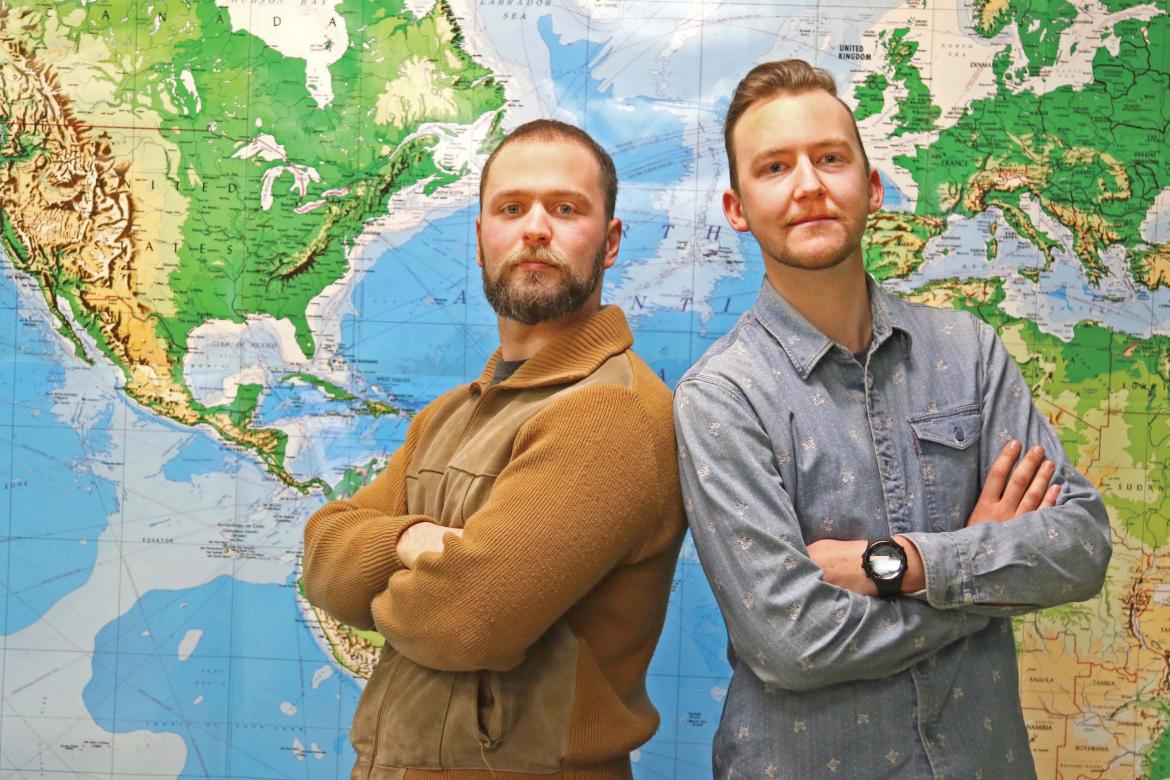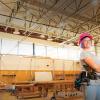
October 17, 2018 - 9:30am
Every year, faculty and students at VIU go out into communities to participate in research that is having significant impacts on the region as well as giving students important experiential learning opportunities. Here are a few projects they engaged in this year. Project four of five.
What stops a person from adopting a change in their business operations, and what factors could convince them to make that change?
Students in VIU Professor Dr. Matthew Bowes’ upper-level Cultural Geography class attempted to answer these questions this spring as part of his latest research project, which employs a potential ecology approach to explore the enablers and constraints of bio-diesel use in commercial, industrial and institutional vehicle fleets within the Regional District of Nanaimo (RDN).
Bio-diesel is produced using renewable resources such as waste cooking oils. The research project received funding through VIU’s Regional Initiatives Fund, a partnership between the University, the provincial government and a community partner – in this case the Cowichan Bio-Diesel Co-op (CB-DC) — to enable students to participate in meaningful, community-based, applied research that directly responds to community needs.
Bowes hopes the research will both target potential greenhouse gas (GHG) reductions in the RDN and increase awareness among commercial and industrial fleet operators about bio-diesel as an alternative to fossil fuels. According to the provincial government, fossil fuel-dependent transportation accounts for 37.2 per cent of BC’s total GHG emissions. The focus on large fleets would put a large dent in that total if business owners chose to make the switch.
“This is an opportunity to dispel some of the myths about and create awareness of bio-diesel as an alternative to fossil fuels,” says Bowes.
Bowes hired three research assistants – two from VIU and one from the CB-DC – to conduct an inventory of commercial, industrial and government fleets operating in the RDN region, collect background research on the use of bio-diesel in large fleets and come up with a short list of fleet operators for students in Bowes’ class to interview. Each student interviewed one business operator and wrote a paper summarizing the results of their findings.
“It makes you really aware of the ways you think and how our backgrounds shape our behaviour,” says Global Studies student Jordan Lineker, who wants to become an urban planner. “To ask people to do something differently, you need to recognize where people are coming from.”
The Cowichan Bio-Diesel Co-op produces and distributes bio-diesel from waste cooking oils collected from restaurants and people’s homes to about 250 members on Vancouver Island.
“It’s really important for us to try and get an understanding of how people perceive it so we can better present it to the public as a feasible alternative,” says Co-op President Brian Roberts, who is also a sessional instructor at VIU.
*This article originally appeared in the Fall 2018 edition of VIU Magazine. Check out more stories on the VIU Magazine webpage.
Tags: Geography | Research | VIU Magazine






